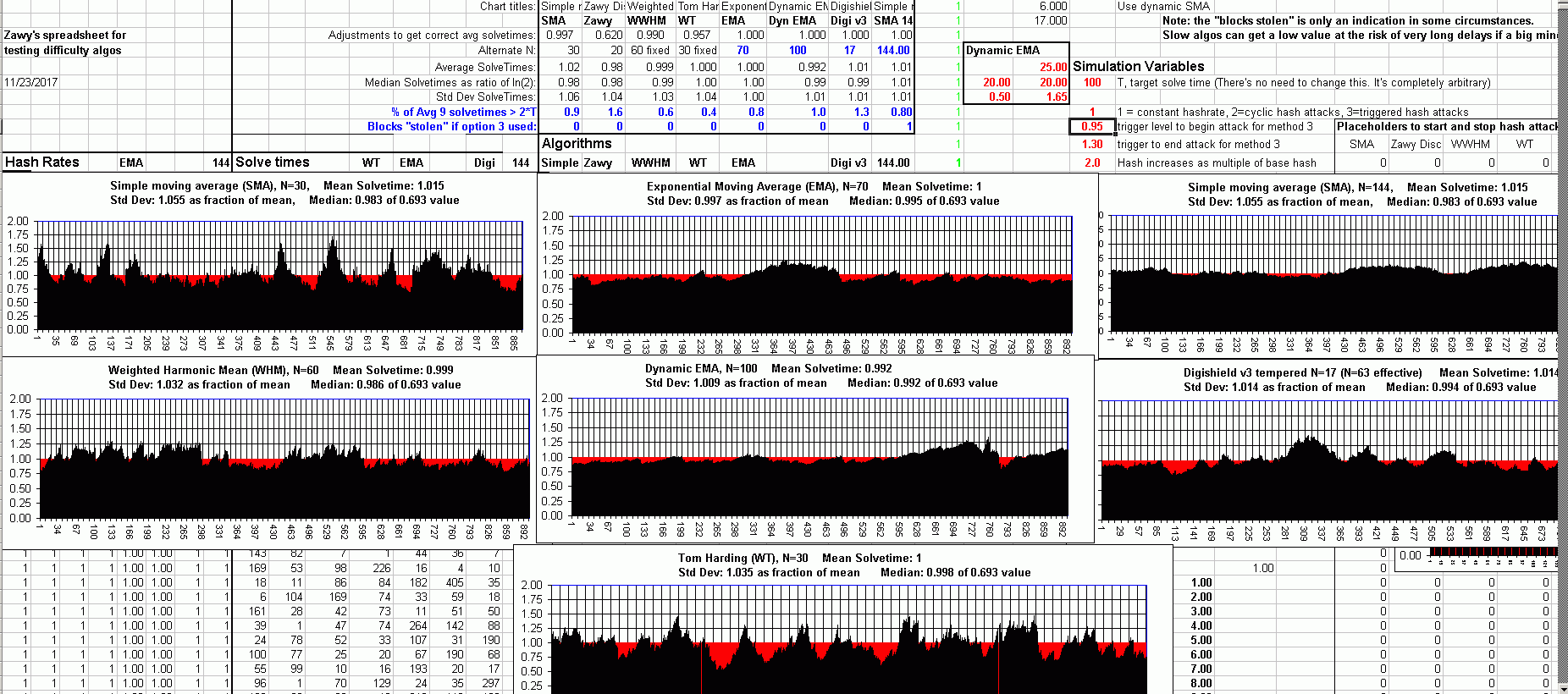-
Notifications
You must be signed in to change notification settings - Fork 27
New issue
Have a question about this project? Sign up for a free GitHub account to open an issue and contact its maintainers and the community.
By clicking “Sign up for GitHub”, you agree to our terms of service and privacy statement. We’ll occasionally send you account related emails.
Already on GitHub? Sign in to your account
Best difficulty algorithm so far #28
Comments
|
This is the new best one. It is beneficial over simple N=70 only if sudden hash changes are >3x. Here are some comparisons under sudden hashrate changes and constant hashrate. |
|
I corrected a code error in the previous post. |
|
An updated version of this LWMA is now being used on 5 monero clones. |
Sign up for free
to join this conversation on GitHub.
Already have an account?
Sign in to comment


I recommend one of the two following. They seem pretty much the same when the N of WWHM is 2x the N of EMA. In case I do not keep this page updated, I'll keep this blog post updated.
=======================
The text was updated successfully, but these errors were encountered: